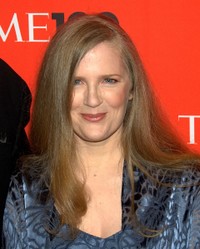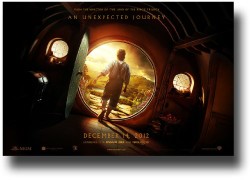Some purists may have doubts about the battles in Mirkwood, but they are mentioned in the Hobbit. We are told that Gandalph just managed to escape the Necromancer, Sauron, but the film has Gandalph imprisoned, which is not faithful to the book. However, the Hobbit does have Gandalph speaking about his role as part of the White Council that drove the Necromancer [Sauron] from Mirkwood, so when this became part of the film it was at least true to the text, even though the Tolkien did not include it in the narrative.
The character of Tauriel is another addition to the text, though as the actress who plays here points out, Tolkien never says that the elves are exclusively male, and this is a valid point. She plays her role well and despite being an addition to the text viewers will feel that her presence adds to the film.
There have been criticisms of the role of women in Tolkien, but feminist criticisms on this matter are in general misplaced. While there are few women in the text, none are stereotypical. What few women are present are strong characters not given to talking only about men and babies. Tauriel is such a female, a warrior maiden with a strong role in battle. However, I found her affection for the dwarf Fili an unwanted addition to the Tolkien narrative. Tolkien was not a romantic writer.
In fact, many people do not realize that the Middle Earth tales are war novels derived from Tolkien's experience of World War 1. Thus they are very much about male combat fellowship, the bonds that grow between warriors who fight together and the inevitable grieving for the fallen. They are therefore unavoidably male books. I think it important that political correctness be not allowed to impose a formulaic politically derived gender division upon texts. While books will normally have a blend of male and female characters, it is inevitable that some books will have more of an emphasis on one sex over another. Some will be told from a male standpoint, and others from a female one. This is to be welcomed as an expression of diversity.










 TheThousand Year Gardenon 11/26/2025
TheThousand Year Gardenon 11/26/2025
 Women of the Gospelson 10/11/2025
Women of the Gospelson 10/11/2025
 Religious Gardenson 08/25/2025
Religious Gardenson 08/25/2025
 Doctor of the Church: John Henry Newmanon 08/03/2025
Doctor of the Church: John Henry Newmanon 08/03/2025




Comments
InTolkien's universe there were no dwarf and human intermarriages. Dwarfs maintained hope of eternal life
Thank you for your comment below in answer to my previous observation and question.
Dwarfs having no afterlife means that they might cease to exist!
Was it possible within the J.R.R. Tolkien universe for dwarfs, elves and men to intermarry?
Tolkien presented dwarfs as having no afterlife, elves were reincarnated, men were taken to heaven or hell
Thank you for your comment below in answer to my previous observation and question.
The second paragraph to the last subheading, The battle, advises us that " I was, however, irritated that Thorin's reference to his destiny after death in the Halls of Waiting was omitted. Tolkien did speculate on the afterlife of men, Elves and dwarfs, so why omit this important statement of Tolkien's thought?"
What did J.R.R. Tolkien consider about dwarfish, elvish and human afterlives?
I thinkn that a duet would have been, as you suggest, more apt.
Thank you for your comment below in answer to my previous observation and question.
Books and films in three parts perhaps abound more than their counterparts in two parts. Might it be because trilogy has a more attracting sound than duet?
But might it have been more compelling to the action and more faithful to the author to have had the film versions in a duet?
I have never heard of this about Tolkien.
Thank you for your comment below in answer to my previous observation and question.
Some online sources describe J.R.R. Tolkien as a sometimes incomprehensible mumbler because of a lacerated tongue from his rugby-playing days. Others describe him as such in his speech even as not in his singing.
The brother of an acquaintance ended up with quite a bad stammer from a bad accident even as that stammer never evidenced itself in his beautiful singing, including as Church soloist!
Have you heard anything about the Tolkien stammer or had you ever heard the Tolkien stammer?
I don't remember this.
The computer crashed before I continued to another component of my comment below.
Authors singing and speaking their characters' thoughts and words can be compelling or disappointing.
Do you remember hearing the Tolkien interpretation as what you as a perhaps inexperienced but undoubtedly precocious sub-10-year-old sought from your trekking through the written Hobbit?